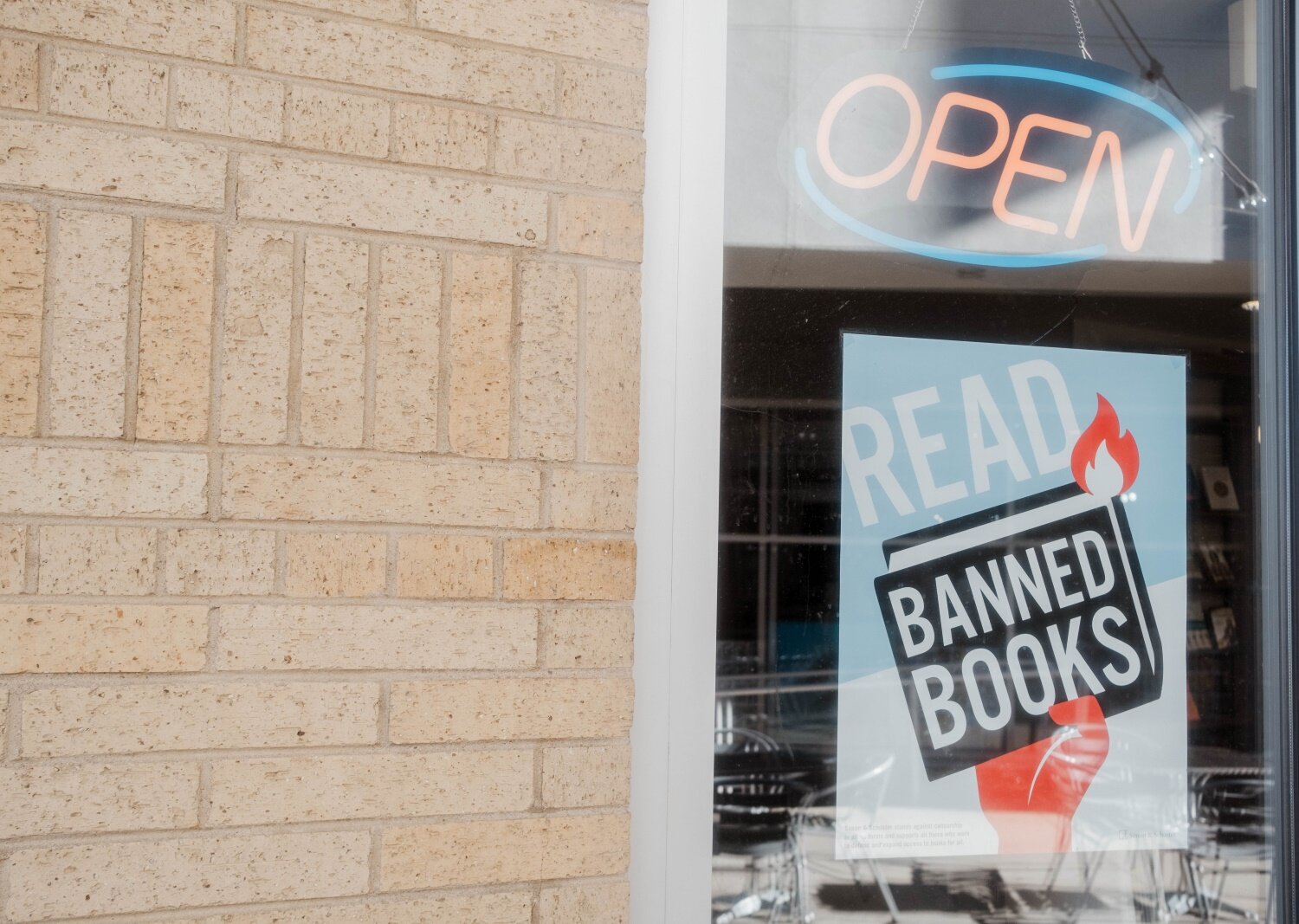Losing a bookstore

DENVER — Strolling through a bookstore smelling freshly-printed paper and exploring illustrative covers is one of Emma Byers’ most formative memories.
Byers, who grew up with a single mother in Denver, bonded with her mom by walking through The Bookies and Tattered Cover Book Store.
“I just kind of grew up going to bookstores and having that be a really central part of my life and how my mom and I spent time together as a family unit,” Byers said. “I cultivated a love for reading at a very young age and have carried that to this day."
A graduate of Denver’s East High School, Byers has fond memories of going to the Tattered Cover across Colfax after school. That location is the largest of the beloved indie bookstore’s seven locations.
In October, Tattered Cover filed for Chapter 11 bankruptcy. The Denver Post reported the bookstore chain owes more than $1 million to publishers, as well as more than $375,000 to Colorado's Office of the State Auditor for abandoned gift cards.
The 52-year-old bookstore closed three locations after filing for bankruptcy. The now-shuttered stores were located in Westminster, Colorado Springs and McGregor Square, just outside Coors Field.
Tattered Cover CEO Brad Dempsey told Rocky Mountain PBS that filing for bankruptcy was the store’s best path toward keeping doors open for its remaining stores.
“This is not a closure or liquidation, this is a restructuring to make it healthier so we can continue for decades to come,” Dempsey said.
Dempsey pointed to two leadership changes in 10 years as a major culprit for the store’s financial perils. The COVID-19 pandemic, Dempsey said, also forced the business to shift its model from primarily operating in-store to online with little preparation.
“The bottom line is we just were not able to do that and now we’re getting back to the right size of four stores and reducing the administrative burden of running such a large platform,” Dempsey said.
Brendan Baker, a creative fiction author and longtime Coloradan, said Tattered Cover’s three-store closure feels like a loss of memories and nostalgia.
“It’s the favorite bookstore for everyone in our family,” Baker said. “It feels like one of the few really good bookstores left in the country.”
Though Tattered Cover is only closing three stores, several book lovers in Colorado said its bankruptcy represents a larger problem of in-person independent bookstores shutting their doors as Amazon and other online giants take their place.
National statistics on the state of independent bookstores vary. A 2022 New York Times story reported more than 300 bookstores opened in a two-year period since the COVID-19 pandemic began. But a study from Open Education Database found a 12.2% drop in local bookstores from 1997 to 2023. The same study found Amazon holds about 23% of the book market.
Book Bar — a bookstore offering wine, coffee and pastries in Northwest Denver — also closed in January. Nicole Sullivan, Book Bar’s owner, told The Denver Post that the store’s closure came amid rising costs and fatigue of running a business.
“I think the sort of sad thing about the potential of bookstores kind of phasing out a little more is that this opportunity to connect with fellow readers around a city that may be new to you is something that could be lost in this transition of diminishing bookstores,” Byers said.
When she travels, Byers participates in what she calls “book tourism,” making sure to visit and review bookstores in cities and countries she isn’t familiar with. The practice helps her feel connected to locals.
“I think (bookstores) are something that have the potential to disappear and that's just a sad thought for me, as someone who loves to find community through books and reading,” Byers said.

As states and cities around the country are banning books from libraries, Colorado book lovers feel independent bookstores keeping their doors open is more important now than ever.
Photo: Peter Vo, Rocky Mountain PBS
Many in-person bookstores now offer coffee bars, classes and other non-traditional means to attract people to their stores.
“It’s one of those things where I think bookstores are increasingly having to be more than one thing to survive, and that’s just because of all the ready competition in the online space,” Byers said. “They’re having to be creative about what communities want and need that they can’t just get online.”
Colleen Sullivan, a Denver woman who runs a monthly book club through LGBTQ+ group “Mile High Queer Club,” said in-person bookstore gatherings are vital for people looking to build community with those who share life experiences.
“Losing independent bookstores is such a loss for the community, because big-name bookstores that have locations all over the country aren’t going to have a grasp of what’s going on in the local community and curate books that would be relevant to the community that we’re surrounded by,” Sullivan said.
In a post-pandemic restrictions world, Sullivan said meeting in-person in dedicated book spaces is crucial to forming relationships and supporting a local economy.
“I think during the pandemic, we really switched to a virtual kind of engagement and I, personally, feel a lot of fatigue over a virtual meeting space,” Sullivan said. “I think having it in-person really lends itself to forming human relationships and building friendships and community.”
As several states and cities pass legislation banning books from public libraries, avid readers said independent bookstores are more important now than ever because they’re not regulated by local governments the way schools and libraries are.
[Related: How many book bans were attempted in your state? Use this map to find out]
“I think people reading is better than people not,” said Baker. “What else is civilization if not for books?”
Alison Berg is a reporter at Rocky Mountain PBS. Alisonberg@rmpbs.org.
